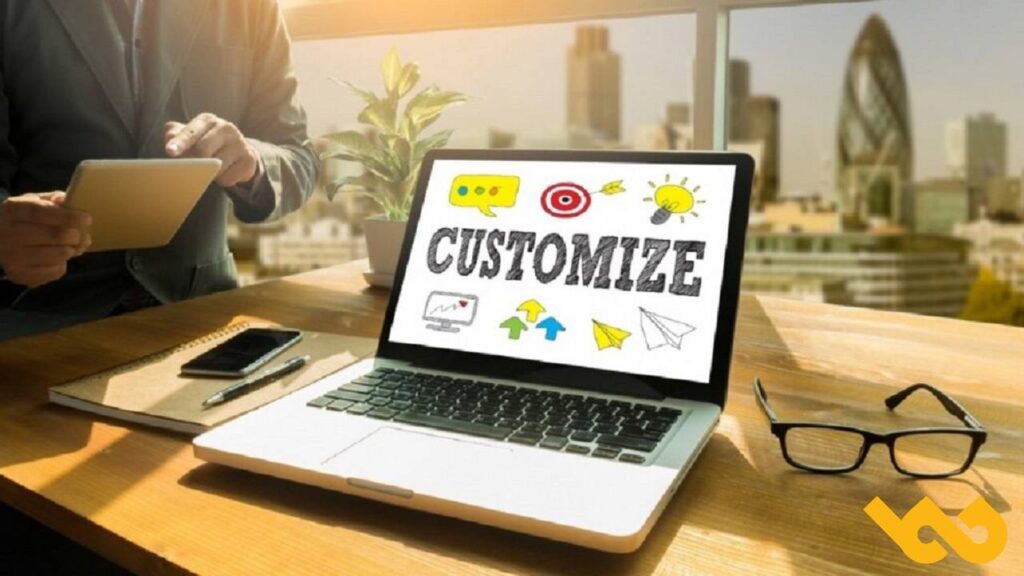In 2023, marketing hyperpersonalization is a must if you want to achieve your marketing goals. But what does this really consist of?
It is a technique increasingly adopted by B2B companies to adapt to customer behavior. It allows us to offer a more individualized and relevant experience. Studies have found that this method can help improve customer satisfaction and increase sales .
In 2023, this marketing strategy has taken on even greater importance. With increasing competition and the proliferation of communication channels , it is essential for companies to stand out by offering more targeted and personalized . In this article, we will explore the benefits of hyperpersonalization marketing for B2B companies in 2023. We will see how this technique can help to: increase customer loyalty, improve conversion and strengthen company reputation.
1 – Strengthening customer engagement
Case studies in B2B companies have shown that marketing hyperpersonalization can have a significant impact on customer engagement. For example, a software company used online behavior to create personalized marketing messages . The result was incredible, as click-through rates increased by 300%. Similarly, a financial services used algorithms to personalized product recommendations This resulted in a 20% increase in sales.
Hyperpersonalization marketing is a strategy that allows businesses to better meet the individual and of each customer. This can be done by using data and algorithms to personalize the experience for each user. This approach has a significant impact on customer engagement because it helps create closer, more lasting relationships By providing a personalized experience, businesses can increase customer satisfaction , build loyalty , and increase their propensity to purchase again.
2 – Improved customer experience
Hyperpersonalization marketing involves tailoring marketing offers and messages to the specific needs of your customers. This can be done through the use of behavioral data and demographic information collected. By adopting this strategy, you can significantly improve the customer experience . More specifically, this will allow you to reinforce the perceived value of interactions with the company.
Customers feel more understood and taken into account, which could only be more beneficial for your credibility . B2B companies can also benefit from hyperpersonalization by offering tailored solutions that address specific problems encountered by their customers on a day-to-day basis. Indeed, the aim would be to have a good reputation and to be seen as a reliable business partner . Obviously, this cannot be done without improving the quality of customer service.
Recent case studies have shown the positive effects of marketing hyperpersonalization on customer experience . For example, a B2B software company used usage data to offer personalized recommendations to its customers, thereby increasing the number of cross-sells and contract renewals . A B2B financial services company has developed a mobile application that offers personalized credit offers to each customer, using transaction and behavioral . This approach has significantly improved customer satisfaction and loyalty, while increasing company revenue.
3 – Increase in conversion rate
Hyperpersonalization in marketing can also increase your conversion rate . To do this, you need to provide more engaging experiences to potential customers. The idea is to personalize your marketing messages and offers by taking into account the individual preferences of your prospects. By doing this, you increase the likelihood that they will make a purchase . First, you need to collect as much data as possible about them, then analyze them. Based on the results, you can optimize your segmentation strategy to better target the most qualified prospects who are most likely to convert.
Furthermore, based on the results of a recent case study, it can be argued that hyper-personalized marketing can help B2B companies increase their conversion rate by more than 20%. As an example, a software company used a hyper-personalized approach to create personalized buying journeys for each prospect, based on their industry and specific needs. The result was extraordinary. Similarly, another B2B company used behavioral data to personalize follow-up messages sent to each prospect. This resulted in a 25% increase in response and conversion rates .
READ ALSO: LinkedIn prospecting in 2023: does it still work? >>
4 – Reduction in customer acquisition cost
Marketing hyperpersonalization can reduce the cost of customer acquisition . By providing a personalized customer experience, businesses can increase their conversion rate and optimize their spend . Indeed, prospects are more likely to engage and become loyal customers if they receive messages tailored to their specific needs. This is why you must send him a tailor-made commercial proposal.
Businesses can use marketing automation tools to collect lead data. The ideal would be to get your hands on their purchase history or online behavior. Then, you can use them to personalize marketing messages and to reinforce your sales pitch . B2B companies have successfully adopted this approach, notably by offering specific content and to each prospect based on their industry and needs. Case studies have shown that hyperpersonalization marketing has significantly reduced the cost of customer acquisition for some businesses, while increasing their conversion rate and revenue.
In conclusion
In 2023, hyperpersonalization marketing has become an essential strategy for B2B companies. By providing a more relevant and personalized experience to each potential customer, businesses can increase their conversion rate and reduce their acquisition cost . Hyperpersonalization marketing also helps retain existing customers by offering offers and content specific to their needs.
The advantages of hyperpersonalization marketing for companies in the B2B sector are numerous:
- It helps improve customer satisfaction by offering more relevant messages and meeting their specific needs.
- It helps retain existing customers by offering a personalized experience at each stage of the customer journey.
- It also helps increase the conversion rate by offering offers tailored to each prospect, which reduces the cost of customer acquisition and improves profitability.
In short, businesses that want to stay competitive in an ever-changing market should seriously consider adopting this strategy. This will enable them to better meet the needs of their customers. Marketing hyperpersonalization is a trend that will only increase in the years to come . Companies that are able to adopt it first will benefit from a competitive advantage .
In other words, you must always stay on the lookout for new web trends!



